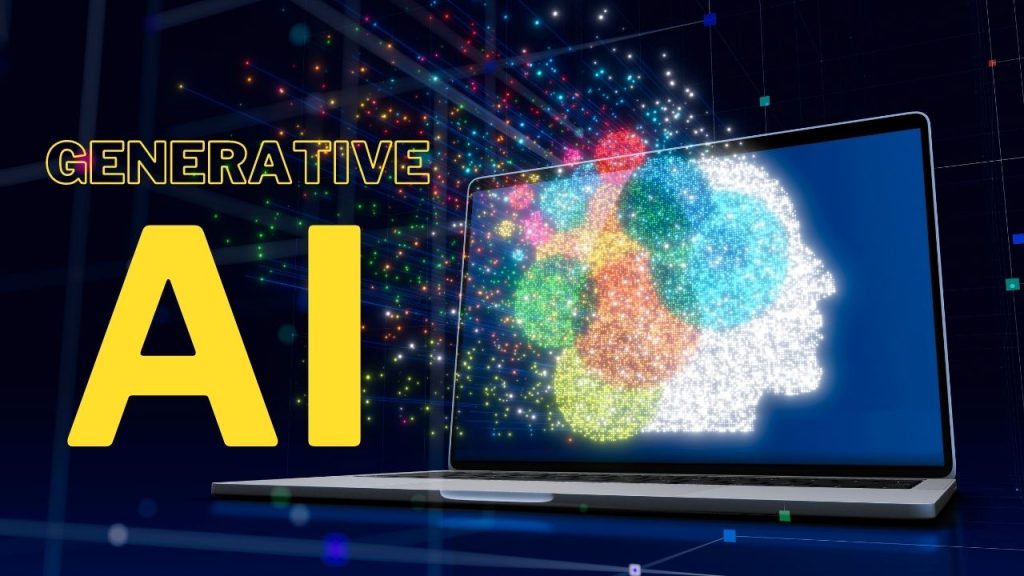In the rapidly evolving field of artificial intelligence (AI), one term that has gained significant attention is "Generative AI." But what exactly does it mean? In this article, we will explore the concept of Generative AI, its applications, and its potential impact on various industries. Whether you are a tech enthusiast or a business professional, this article aims to provide you with a clear understanding of Generative AI and its significance in today's world.
What is Generative AI?
Generative AI refers to a branch of artificial intelligence that focuses on creating models and systems capable of generating new content autonomously. Unlike traditional AI systems that rely on pre-programmed rules and data patterns, Generative AI utilizes advanced algorithms and machine learning techniques to produce original and creative outputs. By learning from vast datasets, Generative AI models can generate text, images, music, and even videos that mimic human-like creativity.
The Rise of Generative AI
In recent years, Generative AI has experienced a significant surge in popularity and has found applications in various fields. From entertainment and art to healthcare and finance, the impact of Generative AI is far-reaching. Let's take a closer look at some of the domains where Generative AI is making a difference.
1. Generative AI in Art and Creativity
Generative AI has opened up new avenues for artistic expression and creativity. Artists can now leverage AI algorithms to generate unique and innovative artworks. By training AI models on vast collections of paintings, sculptures, and other forms of art, Generative AI can produce original pieces that push the boundaries of creativity. This fusion of human imagination and machine intelligence has resulted in stunning artworks that captivate audiences worldwide.
2. Generative AI in Music Composition
Another exciting application of Generative AI is in the field of music composition. With the ability to analyze vast musical databases, AI models can generate melodies, harmonies, and even entire compositions that resemble the style of famous composers or cater to specific moods and genres. This has not only sparked creativity but has also facilitated the exploration of new musical possibilities that were previously unimaginable.
3. Generative AI in Healthcare
Generative AI is also transforming the healthcare industry by revolutionizing diagnostics, drug discovery, and patient care. AI models trained on medical datasets can generate realistic simulations of diseases, aiding doctors in accurate diagnosis and treatment planning. Furthermore, Generative AI can speed up the drug discovery process by generating and analyzing vast numbers of chemical structures, potentially leading to the development of life-saving medications.
4. Generative AI in Fashion and Design
Fashion designers and creative professionals are increasingly turning to Generative AI to enhance their design processes. AI models can analyze fashion trends, consumer preferences, and historical data to generate new clothing designs that align with current market demands. This enables designers to create unique collections while staying ahead of the fashion curve.
5. Generative AI in Gaming
The gaming industry has also embraced Generative AI to enhance user experiences and create immersive virtual worlds. AI algorithms can generate realistic landscapes, characters, and interactive elements that make gameplay more engaging and visually stunning. Additionally, Generative AI can create dynamic narratives and storylines, ensuring that each gaming experience is unique and tailored to the player's actions.
FAQs (Frequently Asked Questions)
Q1: What makes Generative AI different from other AI approaches?
Generative AI distinguishes itself from other AI approaches by its ability to autonomously generate new content, rather than relying solely on pre-existing data or rules. While other AI models may excel at recognizing patterns or making predictions based on existing information, Generative AI goes a step further by creating something entirely new and original.
Q2: Can Generative AI replace human creativity?
Generative AI is not meant to replace human creativity, but rather to augment and inspire it. AI models can generate novel ideas and content, but they lack the emotional depth and subjective experiences that humans bring to the creative process. The true power of Generative AI lies in its collaboration with human artists, designers, and innovators to push the boundaries of what is possible.
Q3: Are there any ethical concerns associated with Generative AI?
As with any emerging technology, Generative AI raises ethical considerations. For instance, there are concerns regarding the ownership and copyright of AI-generated content. Additionally, there is a need for responsible use of Generative AI to avoid spreading misinformation or generating harmful content. It is crucial for developers, policymakers, and society as a whole to address these concerns and establish ethical guidelines to ensure the responsible and beneficial use of Generative AI.
Q4: How can businesses leverage Generative AI?
Businesses can harness the power of Generative AI in various ways. For instance, in marketing and advertising, AI-generated content can be used to create personalized campaigns and product recommendations. Generative AI can also assist in product design, enabling companies to generate innovative concepts and prototypes. Moreover, AI-generated insights can help businesses make data-driven decisions, optimize processes, and improve customer experiences.
Q5: What are the challenges in developing Generative AI models?
Developing robust Generative AI models comes with its own set of challenges. One of the primary challenges is the need for vast amounts of high-quality training data. AI models require large and diverse datasets to learn from and generate meaningful outputs. Additionally, ensuring that the generated content aligns with ethical standards and user expectations requires careful fine-tuning and monitoring of the models.
Q6: What does the future hold for Generative AI?
The future of Generative AI is incredibly promising. As technology advances and AI models become more sophisticated, we can expect even more impressive and lifelike creations from Generative AI. From virtual reality experiences indistinguishable from reality to personalized AI-generated art and music tailored to individual preferences, the possibilities are limitless. However, it is crucial to navigate the ethical and societal implications hand in hand with technological advancements.
Kotwel is a reliable data service provider, offering custom AI solutions and high-quality AI training data for companies worldwide. Data services at Kotwel include data collection, data annotation and data validation that help get more out of your algorithms by generating, labeling and validating unique and high-quality training data, specifically tailored to your needs.



